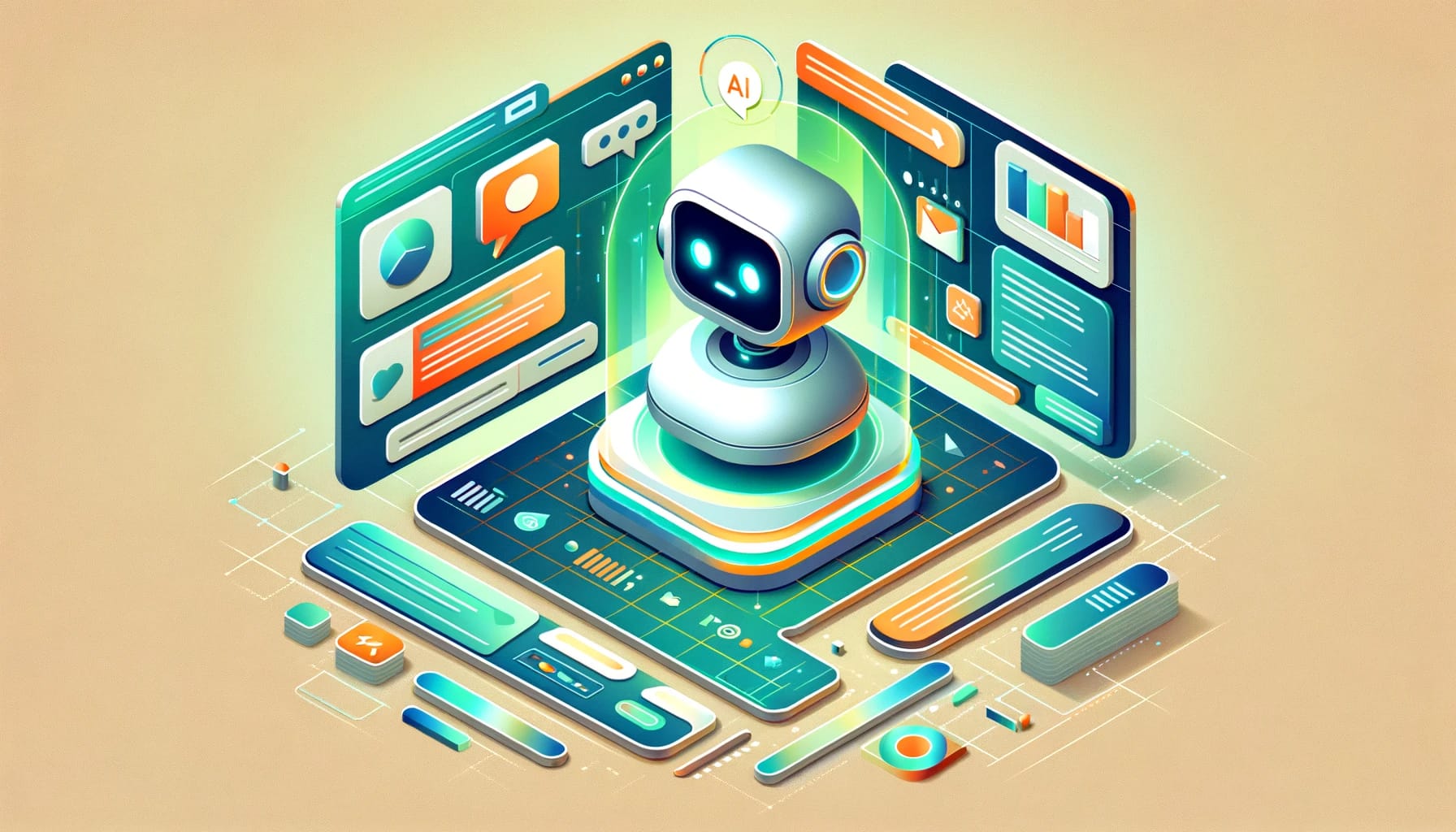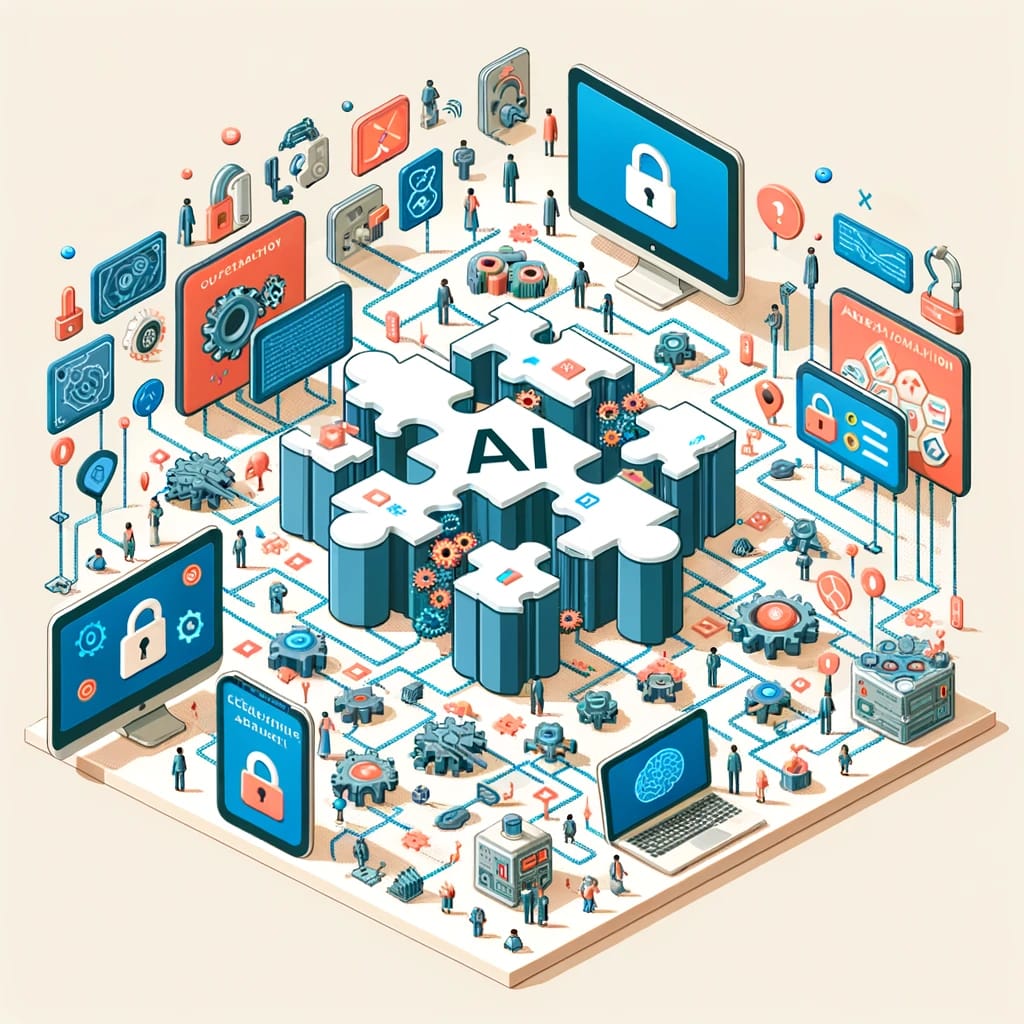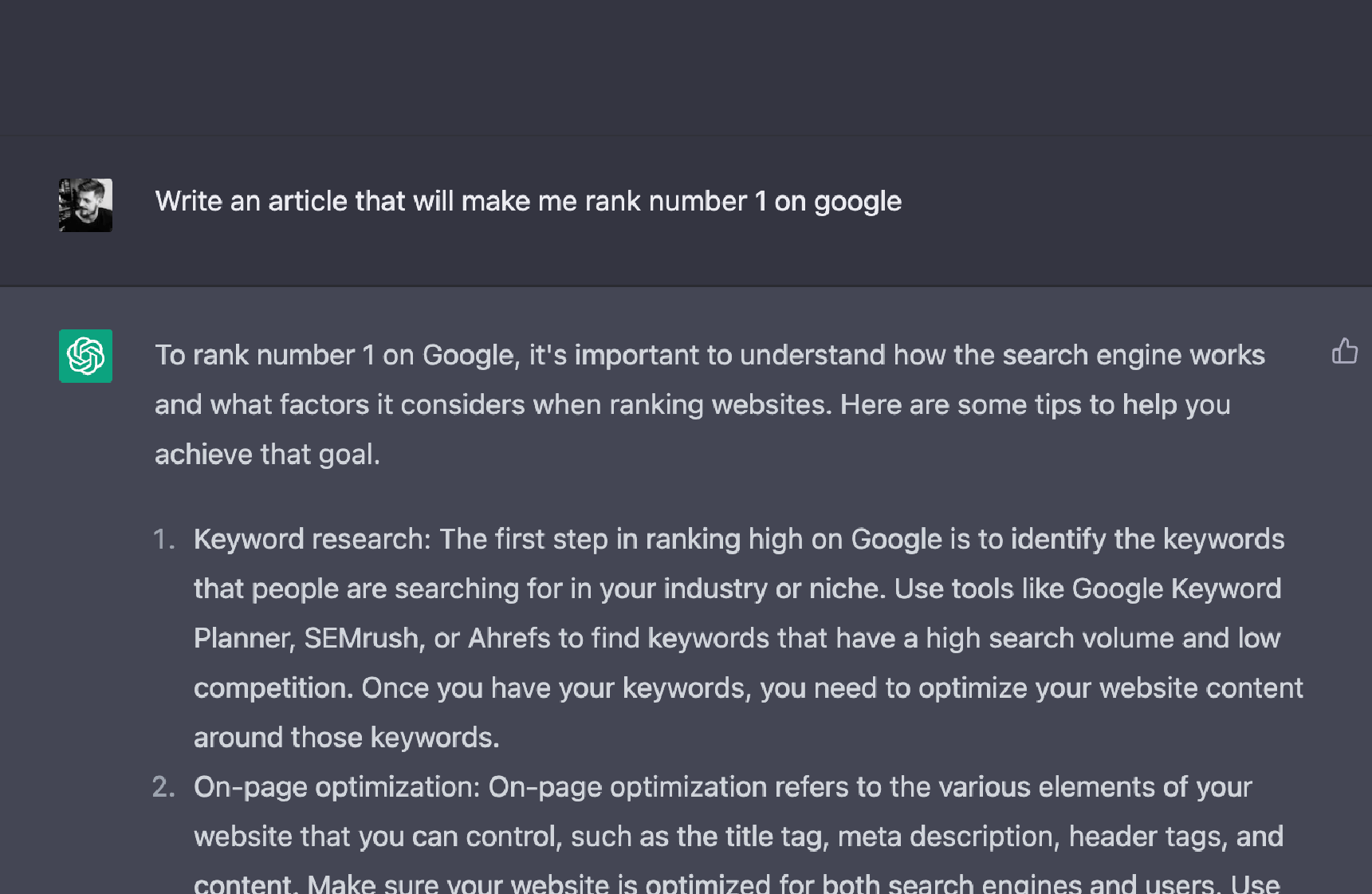Are AI chatbots the end of traditional website search?
In this digital age, where traditional search tools often leave us puzzled and impatient, AI chatbots step in with a promise of change. These savvy virtual assistants, adept at deciphering user intentions and chatting like old friends, are shaking up the status quo of online search. Through our CTO Peter's lens, we explore if AI chatbots are the doom of traditional search or the dawn of a smarter, more cooperative digital experience.

For so long navigating content-rich websites often meant users grappling with clunky search bars with limited understanding of user intent. While these tools serve their purpose, they often leave users frustrated and empty-handed. Users try to meticulously craft keyword phrases, hoping to unlock the golden gates of relevant information. However, often keywords alone might miss the mark, synonyms remain hidden, and filters that have been added by developers in an attempt to enhance search, became tangled webs of confusion. Even with taxonomy-based solutions, the true essence of a user's quest can easily get lost in translation.
But, the landscape of interaction on the web is evolving due to the rapid rise of AI and more specifically the integration of AI chatbots, poised to transform the traditional on-site search and assistance experience. But are they the death knell for traditional on-site search? Let's explore!
Rise of AI Chatbots
Website chatbots are not new, they have been around for years. You most likely have interacted with one when trying to get support from your bank, insurance company or utilities provider. You also probably noticed they suffer from robotic rigidity, feeding predetermined answers to predetermined questions or keywords, usually leading to the user requiring making a call to customer support, send an email, or engage in a chat with a human support officer to get the answers they are looking for. I personally find this to be intensely frustrating.
In my opinion, the future of website search is conversational, and AI chatbots are now enabling that future. I'm excited about the potential of these virtual assistants to revolutionize how users interact with content on the websites we build.
As mentioned, traditional search, for all its utility, often feels like a guessing game. You throw in keywords, hoping to stumble upon the right information. But AI chatbots are changing the game by embracing a human-like dialogue. We are now living in a world where it is possible to converse with a website, where it understands your intent, your preferences, even the nuances of your phrasing. That's the power of AI chatbots.
This isn't just about convenience. It's about creating a more personalised, engaging experience that enhances every user's journey. Think of it as having a concierge on your website, one who anticipates your needs and guides you effortlessly to the perfect information. Need to compare product features? Ask the chatbot. Seeking hidden gems on our blog? The chatbot's your digital tour guide. The possibilities are endless.
The power and beauty of AI Chatbots lies in the continuous learning via the chat feedback loop. As the conversation progresses, the chatbot grows more aware of your intent, tailoring responses to your unique preferences and questions. Think of it as tapping into a digital brain that's devoured every page, every article, every detail buried within your content. This is called the context, and with every interaction this context is enhanced to allow for a richer human-like conversation.
However, this evolution comes with challenges.
Challenges and considerations.
While AI chatbots cast a dazzling light on search, shadows still lurk. Accuracy, transparency, ethical use of data and human involvement are critical concerns, especially in sensitive fields like healthcare, law, and finance.
Even with brilliant AI brains, human oversight is still a required safety net, especially in these pioneering days. Misinterpretations can happen, especially in complex fields. That's why human experts must stay in the loop, monitoring chats and ensuring responses are not just accurate, but also contextually appropriate. The machines have not fully taken over yet.

As chatbots collect user data, privacy concerns enter the scene. Complying with data protection regulations such as GDPR (General Data Protection Regulations) and HIPAA (Health Insurance Portability and Accountability Act), maintaining user trust is crucial. There is a need to be transparent about how user information is used and stored in a quest to build users trust. In today’s digital world, privacy is non-negotiable.
Data sovereignty, particularly for chatbots handling sensitive information, must also be considered. When using a third-party service, companies may not have control over where their chat context data is stored. This is a crucial factor for businesses dealing with private or personal content, such as in healthcare or financial services. Data stored in different jurisdictions may be subject to different data protection laws, potentially impacting compliance and user privacy.
You must also consider the initial and ongoing costs. Let's be honest, building and maintaining an AI chatbot isn't a budget-friendly exercise. Chatbots require infrastructure, paid API subscriptions, creating a comprehensive, vetted knowledge base, and the training and tuning of the Chatbot requires an initial investment. It needs constant upkeep, security checks, and retraining to keep it sharp.
Let’s look at a hypothetical example. Imagine asking a chatbot about a medical condition or for advice on medication, only to receive outdated or incorrect information. I think the issue is obvious. In these fields, the consequences can be dire. To prevent such stumbles, rigorous content governance is required, constantly reviewing, and updating our chatbot's context / knowledge base. This means dedicating a team to ensuring its responses are not just reliable, but life-changingly accurate.
Third-Party AI Chatbot Solutions
For many organisations, especially those without extensive in-house technical expertise, or those that are looking to pilot AI chatbots, using a third-party is a good option. Third-party providers like Chatbase.co offer a streamlined solution, simplifying the process of integrating sophisticated AI chatbots.
These providers often operate on a model where you are charged for the initial ingestion of content and context into their systems, followed by a credit system for the number of chat interactions the service will provide. This pricing model requires careful planning and budget allocation, particularly for businesses expecting high volumes of chat interactions. However for the purpose of trialling an AI chatbot this will be far cheaper initially than investing in a tailored solution.
While third-party services like Chatbase simplify the integration and management of AI chatbots, weighing the ongoing costs, data sovereignty and other considerations is crucial. Organisations must balance the ease of implementation and advanced capabilities offered by these providers with their specific needs, budget constraints, and compliance requirements.

Future Outlook
The trajectory of AI chatbots in on-site search is not just a trend but a glimpse into the future of digital interaction. As we look ahead, several key developments are poised to shape this landscape.
AI is expected to become more sophisticated with the integration of emerging technologies like augmented reality (AR), virtual reality (VR) and the Internet of Things (IoT). This could lead to more immersive and interactive experiences. Imagine, in an e-commerce setting, virtual assistants might soon assist you in virtually trying products before purchasing, or travellers given AI driven suggestions based on preferences through AR as they move through a location.
As machine learning algorithms become more advanced, AI and AI chatbots/assistants will offer even greater personalisation. They'll be able to predict user needs and preferences with higher accuracy, leading to more tailored content recommendations and search results or human like assistance as the user interacts in a more human way.
The future will likely see a more collaborative approach between AI chatbots and human expertise. This synergy will aim to combine the efficiency and scalability of AI with the nuanced understanding and emotional intelligence of human interaction. In sensitive fields like healthcare and finance, this collaboration could be crucial for maintaining accuracy and ethical standards.
Conclusion
The potential of AI chatbots in enhancing on-site interaction and search is immense. It's a chance to transform how users engage with content, swapping clunky keyboards for friendly conversations.
However, AI chatbots, at least in the short term, are unlikely to completely replace traditional on-site search methods, but I do expect that they will significantly augment and enhance them. The future of AI chatbots is not just about technological advancements but also about creating a balance between innovation, user experience, ethical considerations, and regulatory compliance. For marketing and content managers, staying abreast of these developments will be key to leveraging AI chatbots effectively in their digital strategies.
Are You Considering AI Chatbots for Your Site? Book a Free Consultation to Uncover Their Potential!
Sign up for our newsletter for more insights like this
We promise not to spam your inbox. We send a newsletter once a month or when we have something important to say that just can't wait.

